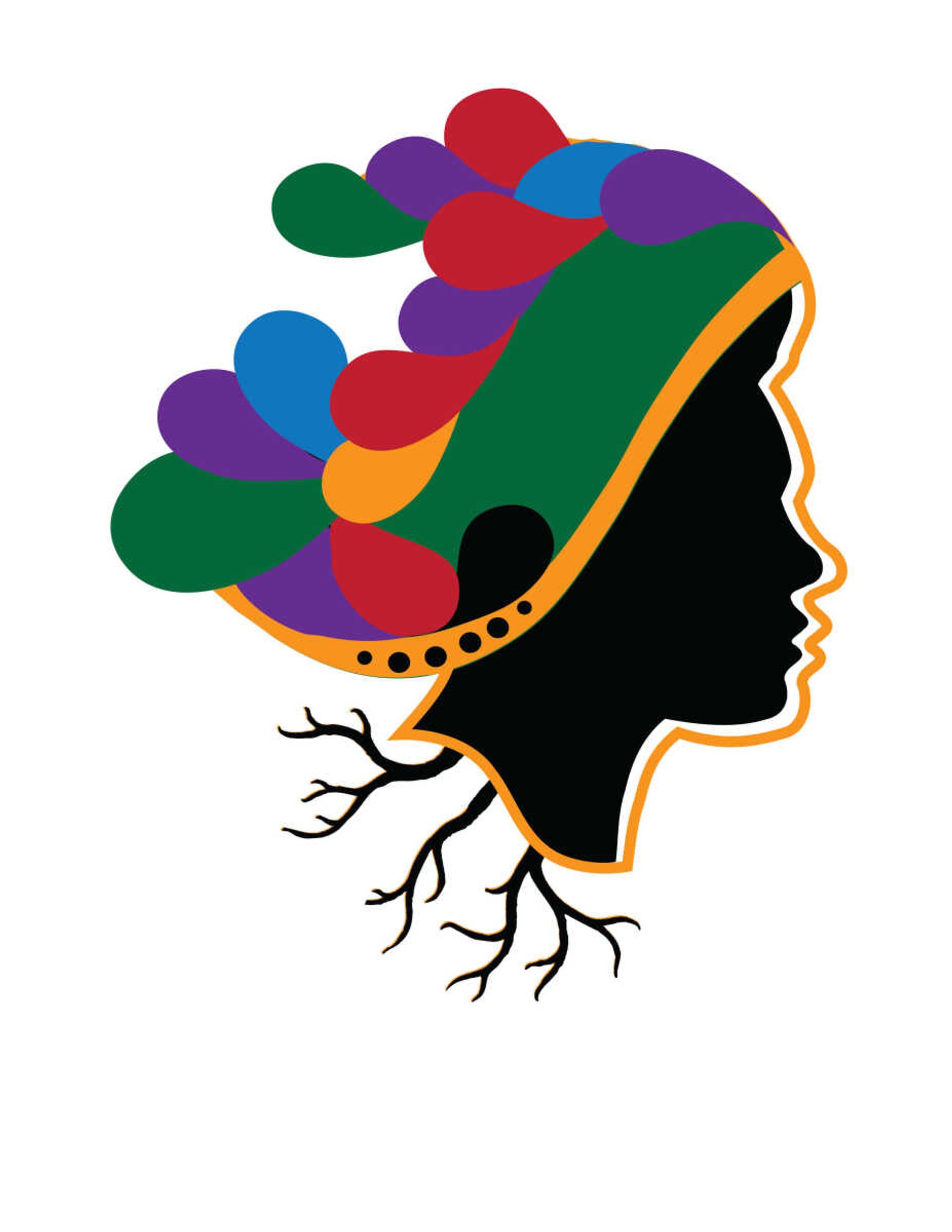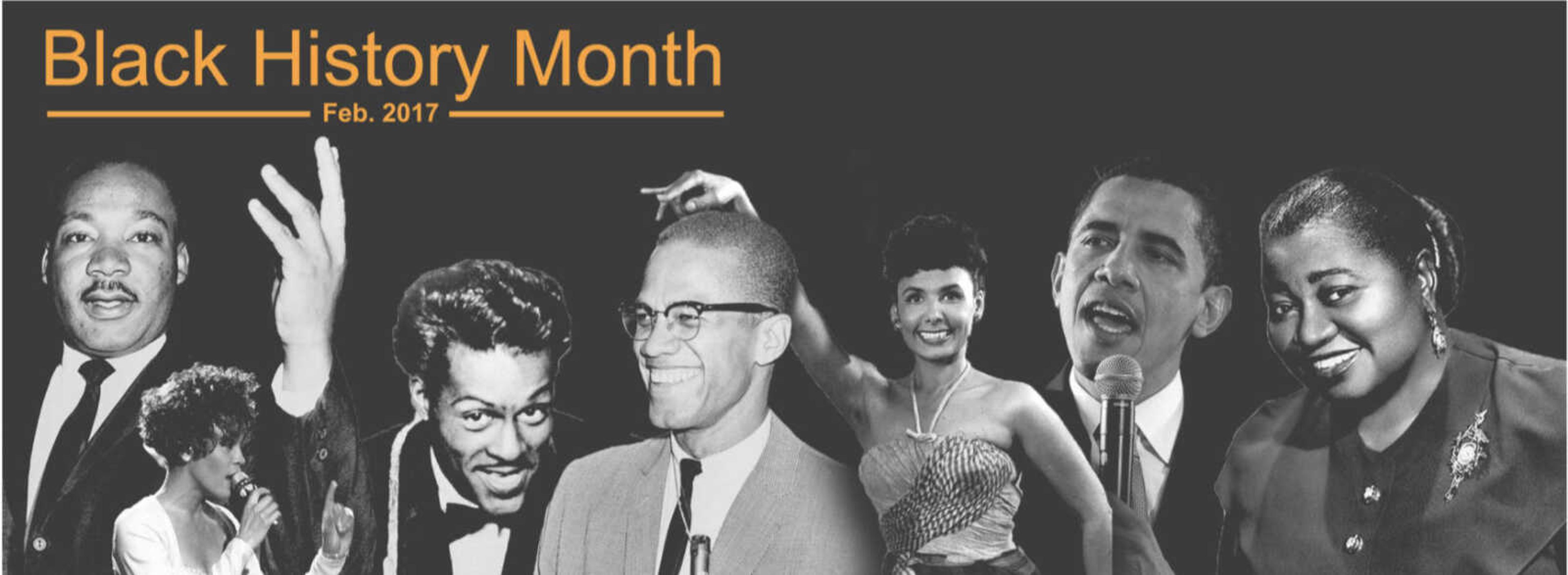Southeast celebrates African American history throughout Black History Month
Black History Month, a month dedicated to celebrating the many accomplishments of African-Americans who have contributed to history by overcoming adversity and beating all odds stacked against them, has arrived. Throughout the month of February, Southeast Missouri State University will host its own events to make African-Americans and others aware of the relationships between education, professionalism and civic engagement to advancement in today’s society...
Black History Month, a month dedicated to celebrating the many accomplishments of African-Americans who have contributed to history by overcoming adversity and beating all odds stacked against them, has arrived. Throughout the month of February, Southeast Missouri State University will host its own events to make African-Americans and others aware of the relationships between education, professionalism and civic engagement to advancement in today’s society.
Campus and Community Connections will be the first event to kick off the events throughout the month. Campus and Community Connections will begin at 5:30 p.m. Wednesday, Feb.1 at Crowe Gallery, 13 S. Spanish St. in Cape Girardeau.
As an outreach effort through the university, Tameka Randle, assistant director of outreach, created her event as an opportunity for African-Americans at Southeast and in the community of Cape Girardeau to build connections through professional development to better assist students and youth in the community.
“The main focus is as we come together to have a better understanding of what others want to talk about, want to discuss, questions that they may have in order for us to be able to move toward that goal. Because sometimes we can have our own thoughts and assumptions of how to do things,” Randle said. “But by coming together collectively we get a better idea of maybe what are things people want to do, what issues they may want to tackle, things they want for the community, for our students, for our youth.”

While African-Americans are encouraged to attend the event, individuals who are not African-American also are encouraged to attend if they want to become more involved and better connected.
“If others want to attend or want to see how they can kind of get involved or how they can get connected or how they can extend relationship building and making connections, we’re open to that as well too,” Randle said.
Making those connections and building relationships is something that Randle said should be continued even once black history month is over.
“Get involved with other things as it relates to community involvement, university involvement. I think those kind of important things getting involved with those things besides where you work, where you go to school,” Randle said. “I think it’s important to get involved with different things to make a difference, your voice is important.”
Trent Ball, associate dean of students and director of student retention, will host event his event All Politics Are Personal at 6 p.m. Wednesday, Feb. 8, in the University Center Tribute Room. The purpose of Ball’s event is to educate African-Americans on how to become aware of what is happening in politics and how they can move forward and navigate through it.
Ball said representation is important to have in politics because it helps in choosing the appropriate leaders.
“As African-Americans we must create the leaders that are representing us so they know what we expect them to do for us and we hold them accountable for that purpose,” Ball said. “But often we don’t do that, we vote for what’s popular and what’s pretty, rather than somebody who has the understanding of what your needs are.”
Even when Ball hires employees he likes to hire people who have the appropriate background to better facilitate and assist students.
“I believe in hiring people, working with people who have the background that I need,” Ball said. “Here on campus my department works with first-generation college students regularly. You’ll find that most of my staff had that background.”
According to Ball, first-hand personal experience has the same importance in politics.
“If somebody’s representing you at the state level or the federal level, what’s their background? Now I know you have to live in your district, but how did you grow up? Did you live in district one in St. Louis, but you went to school at MICDS? Do you really have that dog in the fight?” Ball said.
Multiculturalism, diversity, inclusion and equity are social concepts Ball said benefit everyone, but are not synonymous to each other.
“Inclusion is really making actions to make sure that there are enough seats at the table, not just one,” Ball said. “But equity is, ‘What do you need to be successful?’ We’re asking for equity, we’re asking for a system that makes sure that my children are educated at the same passion that your children are. We understand how to operate in a world where we’re not the majority, but our students who are the majority may enter environments where they’re not the majority, are they ready to get down? We have to engage knowing what our power actually is.”
Progression has constantly been made throughout black history and Ball said it should be recognized moving forward.
“I think we have to remember when we celebrate ourselves we celebrate the progress, we celebrate the end result,” Ball said. “Which we can’t keep the movement going without celebrating the progress.”
James Williams, assistant director of Educational Access Programs, and Kei-Shae McCrary, retention specialist, will host gendered events to discuss challenges both genders may face while also uplifting each other.
Williams’s “Where Do We Stand?” event will be at 5 p.m. Monday, Feb. 13, in the UC Redhawks Room.
Williams’ event is the first event that will be a part of his new black male mentoring program, which was created for African-American men on campus to hold a discussion about their role in society and how they can promote brotherhood.
“It’s just an opportunity for the males on campus to get to know black professionals on campus because when you come for your tours, you come down for visits and stuff how often do you see a black professional?’ Williams said.
The idea for the black male mentoring program came when Williams said he attended a black male initiative summit at Harris Stowe State University in St. Louis.
“A lot of the students they enjoyed it, they said this is something we should do on campus. So with the panel we especially with the times we’re in now ‘you know with Trump being in office we needed something for the young black males on campus,” Williams said. “Where do you see yourself, not just on Southeast’s campus,but in society right now? What do you feel like your role is? What do you feel like as black males, what can we be doing ... for the current students ‘cause this is for staff members as well. What can we be doing to help the students? What support do [students] need from us? And what can you guys be doing to look toward to the future to reach back and help young men in communities?”
Williams wants the male mentoring program to serve as an outlet and create a safe space for them to be able to vent.
“Once we start the black male mentoring group we plan to have bi-weekly or monthly meetings just for the guys to come and just talk about things they maybe going through,” Williams said.
McCrary’s second annual invitation-only Sisters Doing It For Themselves “How Do We Keep Our Vision Alive” event will be at noon Tuesday, Feb. 28, in the UC.
The event’s mission is for African-American women, including faculty, staff and students to discuss what their visions are and why they are important.
“This year it’s about redefining your vision, making sure that we all know our vision, are encouraged by our vision and encouraging our students to create a vision for their own lives, because life without a vision is like you’re walking aimlessly,” McCrary said. “So if you have a vision for your life, it actually gives you something to strive for and to fight for.”
The 21st annual Michael Davis Lecture will be held at 6 p.m. Wednesday, Feb. 15, in the Glenn Auditorium in Dempster Hall.
Michael Davis was an African-American menwho was a student in the Department of Mass Media. During his time at Southeast, Davis decided to pledge in the fraternity Kappa Alpha Psi Fraternity, Inc. However, Davis died as a result of a hazing incident that happened while he was pledging in the fraternity. Since Davis’ death, the Michael Davis Lecture Series has been held in his honor for more than 20 years. The purpose of the lecture is to celebrate his life, while also shining light on the contributions of African Americans in media.
Dr. Tamara Zellars-Buck, associate professor of mass media, said students who aren’t African American can still find value in the lecture’s message.
“So regardless of the student’s race or background, anyone who comes can gain something from this lecture,” Buck said. “There’s the opportunity to learn how to be a media professional, there’s an opportunity to learn from the mistakes that the professional who is speaking made from their experiences. You can gain some insight. So there’s lots of benefits to attending.”
Southeast’s National TRIO Day Celebration will be at 5:30 p.m. Tuesday, Feb. 28, in the Show Me Center Meeting Rooms.
TRIO is a set of educational programs funded through the Department of Education that allow students from underrepresented backgrounds the chance to accomplish their goals of receiving a college education. Some of the underrepresented groups TRIO represents are first-generation college students from low-income backgrounds and individuals with disabilities.
Student Support Services and McNair Scholars are the two TRIO programs at Southeast. Student Support Services is a federally-funded program that aims to asist students wanting to receive a post-secondary education by providing them with opportunities to excel academically and gain basic college requirements. The McNair Scholars program was created to prepare and educate underrepresented groups looking to pursue a graduate degree.
Monica Barnes, director of McNair Scholars at Southeast, said the goal of the TRIO Programs is to increase the numbers of student retention and graduation rates.
“What we can brag about is that our students in TRIO Programs are better retained than the university’s retention as a whole,” Barnes said.
The Office of Academic Support Centers hosts a National TRIO Day Celebration to recognize students’ accomplishments who are a part of TRIO Day Programs.
“The way we choose to celebrate is by having a dinner with our students and our supporters on campus and in the community and we like to recognize student accomplishments,” Barnes said. “It’s nice for students to get some recognition for, like, ‘Hey I made it to college, I’m succeeding in college and I’m doing some great things.”







